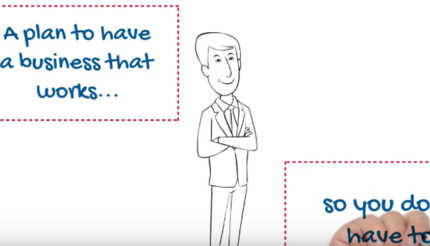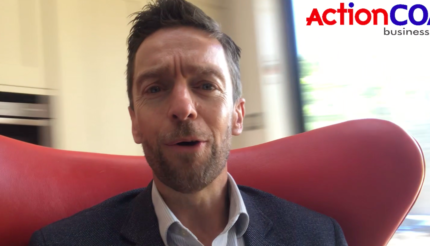There is an endless amount of large and small things you can do to eliminate efficiency and get more done every hour you work. I’ve listed 26 time management and productivity tips. Use these things to gain yourself more time.
1. Eat that frog
Mark Twain, author of Eat That Frog said that if the first thing you do each morning is to eat a live frog, you can get through the day with the satisfaction of knowing that is probably the worst thing that is going to happen to you.” Your frog is the task you are most likely to procrastinate on. The concept is to get the hardest, largest and/or most important tasks done first!
2. Schedule according to energy
Speaking of eating that frog, do those particular tasks when you have the most amount of focus and energy – your “magic hours”. This is typically 2-3 hours after you wake up. Create a schedule based around your energy in order to be as productive as possible.
3. Keep a time diary
A time diary is a simple way to see how you spend your time. Record this for a month or two to see where you’re wasting time and what influences productivity.
4. Make use of waiting time
If you’re in a doctor’s waiting room, for example, have something with you to do. This could be reading a book or blog or catching up on emails. Also use your travel time to make phone calls.
5. Schedule your work in batches
Start batching similar tasks together. For example, spend one day solely dedicated to writing, another day for meetings.
6. Delegate or outsource
Instead of doing everything yourself, delegate or outsource things to someone else so you can focus on more important tasks.
7. Stop multitasking
It takes longer to complete a task when we multitask because our minds shift back-and-forth. Focus on one task at a time. Train your brain to slow down a little.
8. The “two-minute rule”
According to David Allen, author of Getting Things Done, if a task is under two minutes to complete, do it now so it’s out of the way.
9. Jay Shirley’s “Must, should, want method”
A simple exercise from Jay Shirley. Start each day by answering these three questions: What must you do to create the most impact today? What should you do to build a better future? What do you want to do so that you can enjoy today and life more completely?
This gets your day started on the right foot, while increasing your productivity and happiness.
10. Get your environment right
Work in an environment where the sound suits you (some prefer silence, others like background), and make it organised, comfortable and free of distractions. Also make sure you have all the tools and resources readily available.
11. Turn off notifications
Turn off all notifications from your phone and emails when you’re eating that frog.
12. Make a procrastination list
This is a list of high-leverage activities that you can chip away at if you have down time. Examples include reading industry articles, organising folders, or reviewing your contact lists.
13. Have a cut-off time
Set a specific time to completely check-out from work so you can recharge your batteries. Doing so ensures you’ll be fully energised the following day.
14. Standing and walking meetings
Some meetings are essential. But instead of sitting, walk and pace if you’re on the phone, or change an in-person meeting to a walking one. Not only is it better for your health, this type of meeting reduces distractions and promotes collaboration.
15. Get an easy win
While you usually focus on tackling the hardest tasks first, sometimes you need an instant victory, like getting out of bed 30 minutes earlier. It’s a simple way to feel accomplished and build momentum for the rest of the day.
16. Find your flow state
A flow state is where you’re completely absorbed in what you’re doing at the moment. Try to find ways to get into your flow state as frequently as possible.
17. Bargain with yourself
If you don’t want to do something, make a deal with yourself to do at least five minutes of it. More often than not, after five minutes of doing it, you’ll end up doing the whole thing.
18. Identify your keystone habits
Charles Duhigg, author or The Power of Habit, defines “keystone habits” as those that can transform your life. Examples include planning out your days, meal prepping, exercising, and having strong willpower.
19. Set process goals
A process goal is what you actually need to do in order to achieve a larger goal. For example, if you want to increase sales by 25%, your process goal might be to call 5 potential clients daily.
20. Schedule your day
Finish the working day by scheduling your following day and listing your to-dos. Not only will this boost productivity, but it will clear your mind to relax for the evening.
21. Use an online calendar
You can access an online calendar from multiple devices, schedule meetings/appointments, set up reminders, block time and set up recurring events. A good calendar tool creates a daily routine, puts time limits on tasks, and helps you plan breaks.
22. Share your calendar
Share your calendar with colleagues and clients so they can schedule meetings productively and be aware of deadlines without back-and-forth emails. Also share your calendar with your family so they know where you are and when not to be disturbed.
23. Jot down “forgettables”
What happens when something pops in your mind while you’re working on a task? Have a pen and paper handy so you can jot it down. This gets the thought out of your head, without doing much damage to your flow.
24. Break large projects into bite-sized pieces
It’s almost impossible to see the light at the end of the tunnel when working on a large project. So break these projects into smaller, more manageable tasks.
25. Find a coach
A coach will share with you the tips and tricks they have learned along the way, as well as the mistakes to avoid.
26. Enhance or develop skills
Learning or strengthening skills can help you to complete tasks faster. Not only will you have more knowledge, you will also have new approaches to solve problems. It also boosts your confidence.





